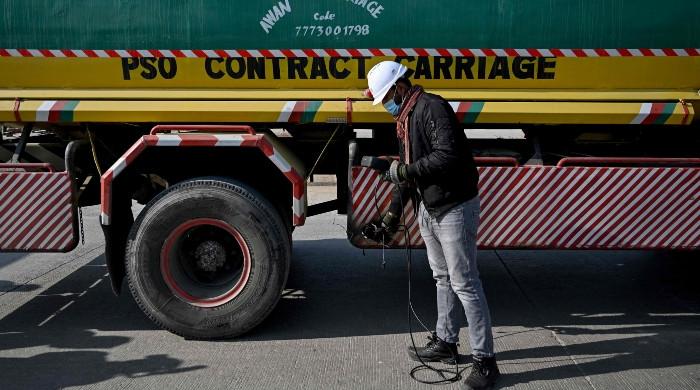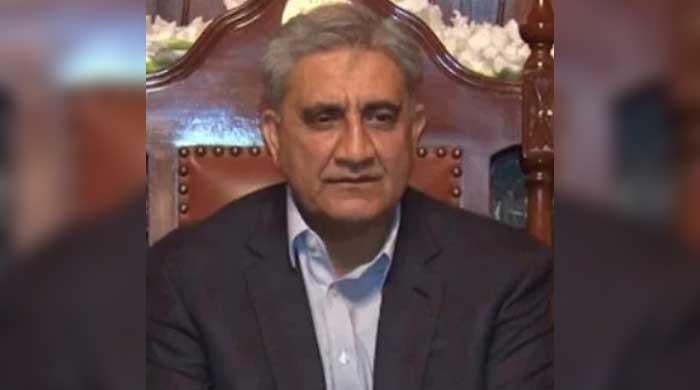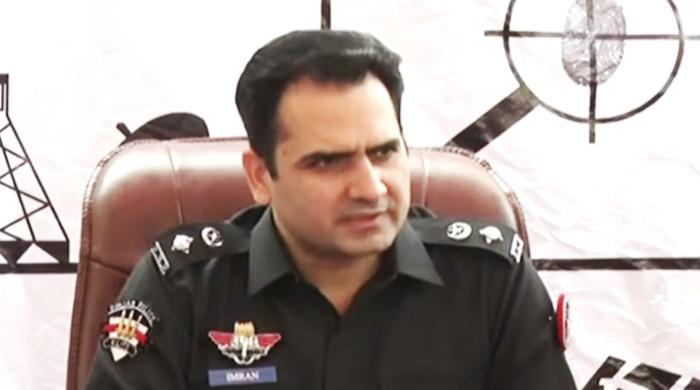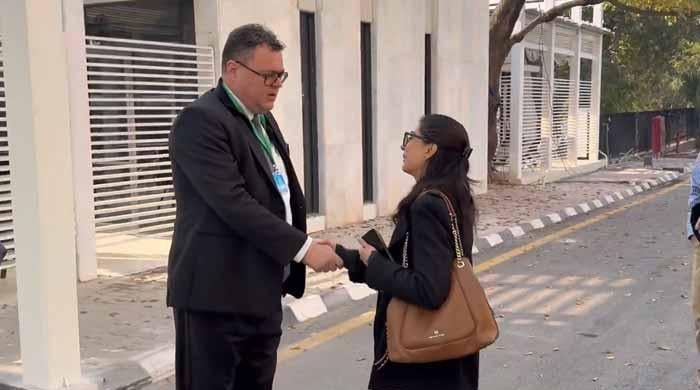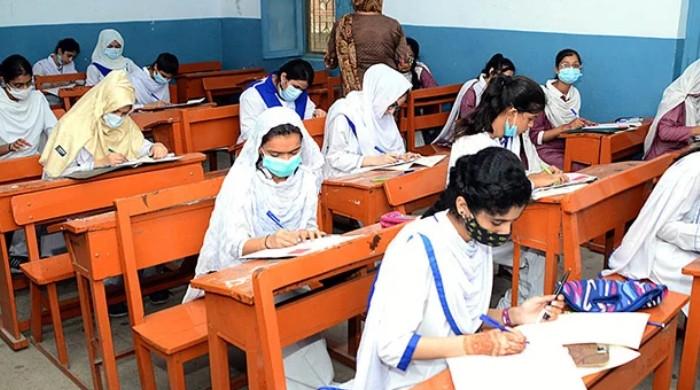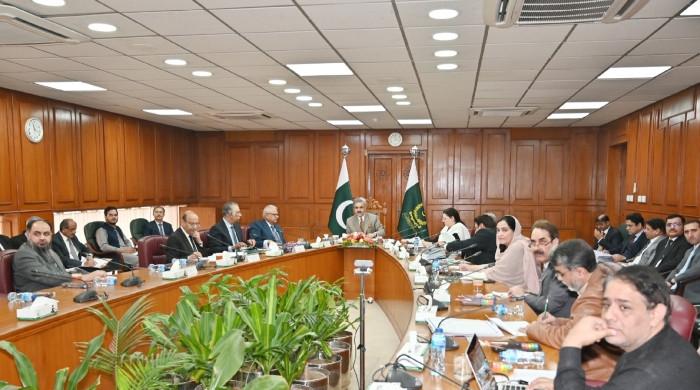Is Imran overconfident?
His political focus has been on corruption and accountability since day one, and perhaps this is exactly where he often commits political errors and disappoints his critics
October 27, 2016
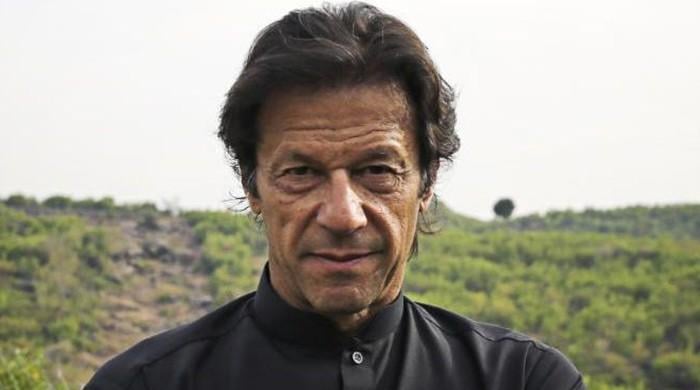
Charismatic Imran Khan, through his aggressive posture — something which he draws from his cricketing past — has put not only the government and the opposition under pressure but even the establishment circles are concerned over his confidence, or perhaps 'over confidence' about the possible outcome of his November 2 'Islamabad siege'.
All this has led to all kinds of speculation in the country including the possibility of a 'third party's' intervention. In the past this confidence had damaged Imran politically, but he believes this posture and style has put him far ahead over other opposition leaders. So, will he turn the tables this time and send Prime Minister Nawaz Sharif back to Raiwind, or would he himself return to Bani Gala like he did in 2014?
His over confidence was reflected in his tone when he not only termed Prime Minister Nawaz Sharif as a security risk, but also maligned veteran opposition leaders—with terms like 'easy load' for Asfandyar Wali, 'diesel' for Maulana Fazlur Rehman, 'chor' (thief) for Asif Ali Zardari, 'showbaz' (showoff) for Shehbaz Sharif—and thus drew a clear distinction between himself and the rest.
This is the style of a leader who is too confident about the possible resignation of the prime minister or even the fall of the government, constitutionally or unconstitutionally.
What has given him so much confidence? Is it because he expects a massive and charged crowd, or is it something else? Even in 2014, he was as confident as today, even on the day Prime Minister Nawaz Sharif and Army Chief General Raheel Sharif had a marathon meeting, but, in the end, Imran was disappointed.
Another reason for his confidence today is the possible political isolation of the prime minister unlike in 2014. But the manner in which he has maligned other leaders could push them away and parallel opposition could join hands against both the PTI and the PML.
Imran had even postponed his party elections until the next general elections and just wanted to run the party with his special core team comprising Mr Jehangir Tareen, Aleem Khan, Naimul Haq, and the one-man-army, Sheikh Rasheed Ahmad. He hardly cares whether his style is democratic or dictatorial.
On Monday, he faced an embarrassing situation when he had to 'regret' with Dr Allama Tahirul Qadri in a bid to seek his support for the Nov 2 march. In another strange development, he joined hands with PML-Q whereas, in the past, PTI leaders had accused the Chaudhries of Gujrat for getting relief for Moonis Elahi. In the past, he was also very critical of Chaudhries, who had blocked his party from becoming Gen. Musharraf's 'King's party' in 2002.
But these political gimmicks hardly bother Imran as long as he enjoys popular support. He has now even taken the 'U-turn' in his style of politics. I still remember when he entered politics in the early '90s, he wanted journalists not to ask questions about cricket, as he wanted his image to be built up as a politician. In those days, he made headlines for his comments on cricket, but now he hits the headlines for his political comments.
He has now decided to exploit his glory in cricket for his rise in politics. He has now used all his cricketing tactics in politics and often mentions the 1992 World Cup. In every jalsa, a few-minutes-long documentary on his career is screened for the public. He enjoys when people call him 'Kaptaan'.
Imran is physically fitter than most Pakistani players and perhaps the fittest among the politicians of his age. He survived a major injury when he had fallen from the stage and remained under treatment for many months.
He has now prepared himself for the decisive finale of the 'political world cup' with his political archrival Nawaz Sharif on November 2. The question is, will he accept the result if the matter is referred to the 'third umpire'?
His political focus has been on corruption and accountability since day one, and perhaps this is exactly where he often commits political errors and disappoints his critics.
The reasons behind his support for former military dictator General (Retd) Pervez Musharraf from 1999 to 2002 was for two reasons. A) He thought the General would put all corrupt politicians in jail, particularly Nawaz Sharif and Benazir Bhutto. B) He thought Musharraf would give his party preference over PML-Q. He ended his relationship when PML-Q was chosen to become the 'Kings party', and not PTI.
Today, he is determined to see the fall of the PML-N government, and it is least of his concerns how it will come about, as long as it comes sooner than later.
In his style of politics, he does not care even if it comes through 'third party' intervention. Although there is very little possibility that it would happen, but Imran is eager to welcome any move, if someone promises to put both Sharif and Zardari in jail.
He has his own definition of democracy, parliament, and the constitution. So he hardly goes to the National Assembly. His continued bouncers and aggressive posture like any fast bowler had even put the otherwise cool politician like Nawaz Sharif to response in the same tone and his team players have also fallen in his trap.
Without bringing any socio-political revolution in Kyber Pakhtunkhawa, Imran through his aggressive politics has also made the PPP quite nervous, while both the JUI and ANP know that their political careers are also at stake at the moment. Interestingly, he has not brought any major change in KP, except for a few reforms which are yet to be implemented, but the KP opposition also failed in captivating the situation.
This is the Imran Khan I know from the day he entered politics. One of the main reasons of his popularity has been the bad governance of PPP and PML-N governments. He has his own style of democratic culture and in some way has the tendencies of a 'civilian dictator'. At least this is what he proved in his own party when two of PTI's Chief Election Commissioners, retired Justice Wahjiuddin and Mr Tasneem Noorani, had to quit.
He liked Zulfiqar Ali Bhutto because of his courage and considered him as a true nationalist. He liked Sheikh Rasheed Ahmad because of his boldness and 'awami' style.
Imran once told this writer that he was never interested in politics, but has been dragged into it when hurdles were created by the two civilian governments of late Benazir Bhutto and Nawaz Sharif.
Both Imran and Sharif were not interested in politics: both played cricket together, both started their political careers from Lahore, and both more than once had joined hands against their common political foes. Neither have yet contested against each other in any election.
Today, they are archrivals and can go to any extent in defeating each other on the political front.
As a journalist, I have followed Imran's political career from when he used to visit the Karachi Press Club and was given lifetime membership in 1989 for his contribution in the field of cricket.
Today, he is among Pakistan's top-most politicians and far ahead of other opposition leaders when it comes to popularity, but in certain areas still lacks political maturity in decision-making.
It took him almost two decades before his party, Pakistan Tehreek-e-Insaf, got the first major electoral success in 2013 and formed a government in Khyber Pakhtukhawa, surprising veterans like Asfandyar Wali Khan and Maulana Fazlur Rehman.
The PTI is a rare phenomenon which has attracted political workers from both right-wing and liberal parties like Jamaat-e-Islami, Pakistan Muslim League and Awami National Party. Despite the fact that he hails from Minawali, he is the most popular leader among Pashtuns.
Thus Imran, through his final assault on Sharif's long standing in politics, is now ready to face the possible consequences in the aftermath of Nov 2, but the Supreme Court hearing a day earlier has even made him nervous.
Victory or defeat aside, Imran has taken the country by storm without even realising that there is always a lot of risk involved when a tsunami strikes Islamabad. No one knows who this storm would hit the hardest.




